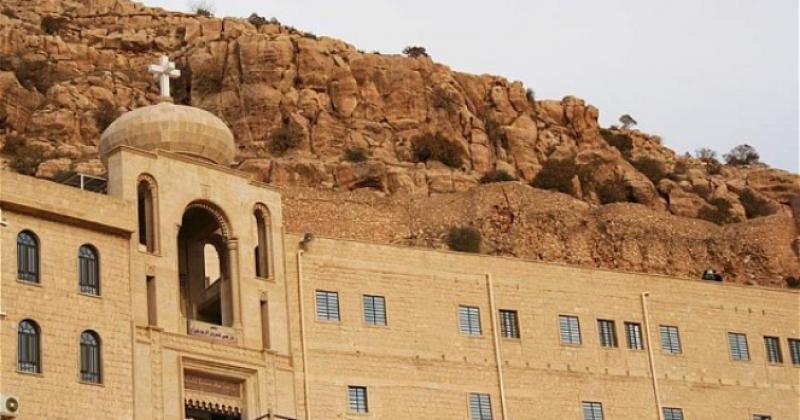With extremists flying the black flag of the Islamic State of Iraq and Syria (ISIS) less than an hour down the road, the future of one of the last Christian communities in the Middle East is at grave risk of assimilation or annihilation.
An estimated 100,000 Iraqi Christians fled the Plain of Mosul in several panicked waves that began in June as ISIS swept east from the Syrian border, murdering, raping and kidnapping as it went. Every place ISIS conquered, it immediately issued an ultimatum to Christians that repeated the stark choice they had given to Syrian Christians when they seized large parts of that country during the past two years. Christians had to either pay a huge ransom for their freedom, convert to Islam or be killed.
"After being here for more than a millennium, this is the Christians' last stand in Iraq," said Safa Jamel Bahnan, who used to work as a truck driver at the Mosul airport. "Over the centuries we have faced the sword so many times for our beliefs. In two, three, four years Christians will not be here because Daesh (ISIS) kill us. We will probably be living in the U.S., Canada or Australia. Otherwise, we will be erased from this Earth."
Father Rian, who celebrated one of the Masses, was equally grim about Christianity's future in the Middle East.
"What we are living is the last chapter of an ancient story," the Chaldean Catholic priest said. About half of the Christian refugees -- whom the UN regards as internally displaced persons -- are jammed into the Kurdish capital, Irbil. Many of them attended the four masses offered Sunday at St. Joseph's Catholic Church. The masses were celebrated in the Chaldean and Assyrian dialects of Aramaic which are related to the language that was spoken by Jesus Christ.
Those packed into the grounds at St. Joseph's were astonished when they were told that two of Canada's three main political parties have opposed the Harper government's plan to send half a dozen warplanes to the Middle East to join the U.S.-led bombing campaign to drive ISIS back from Mosul and other Iraqi cities that they have captured.
"If the U.S. airplanes had not been here at the right moment, Irbil would have fallen and ISIL would be here. Everybody knows it," said Shoban Kunda, who attended Father Rian's mass with his wife. "So we know that air power can help to stop them."
What Canadians need to understand is that "someone has to stop Daesh, even if it takes years, because they want to destroy everything and bring us and the rest of the world back to the Middle Ages," said Elid Matte, who like Bahnan, had escaped from the town of Qaraqosh, which is 97 per cent Christian.
"It was a good beginning to start with airplanes. If ISIL had reached Irbil, they would have done to us what they did to Christians in Mosul."
It wasn't difficult for many worshippers to get to St. Joseph's. Thousands of Catholics have been camped out in UNHCR tents or sleeping under blankets for weeks in the small church compound or in the shells of derelict buildings across the street.
"It's OK now but the rainy season begins in one month and when winter comes and it won't be good for anyone here," Shobhan Kunda said. "Irbil is suffering with traffic jams. There is trash everywhere. Housing costs have gone way up."
Safa Jamel Bahnan had found a place to stay with his sister who has lived in Irbil for some time. Joining them were 60 members of their extended family. The living quarters were so tight that Bahnan, who is a big man, sleeps in a space that is two-metres long and one-metre wide.
"We've lost everything. Many of our people now try (to) emigrate."
Canada comes up as one of the most favoured destinations to settle in. Ayman Abdul Aziz Majid made the point by proudly showing a Canadian flag that is the screen saver on his mobile telephone. The image of the Maple Leaf also served as a link, connecting him to a Canadian government website in Arabic that explains how to emigrate to Canada.
But more than anything those attending mass wanted to return to the homes they had abandoned. To get from here to there they were in unanimous agreement that it would take Canada and other western countries to send infantry and tanks, which not one of them has yet agreed to.
"Bombing is not so efficacious. There will have to be troops on the ground to retake Mosul and end this very dark period," said Father Zuhir, who joined 20 Syriac Catholic priests and 60 Syriac Catholic nuns who fled Qaraqosh. One of Zuhir's parishioners agreed."There must be soldiers, too," said Sonia al-Shorahchy. "Otherwise immigration is our only future because it is impossible for me or any of us to become Muslims."
